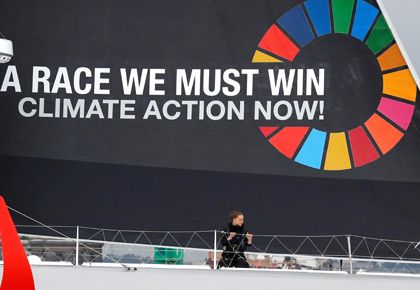A country such as India could have more ambitious domestic targets but commit more conservatively under international agreements -- as other countries have done -- to maintain strategic parity and also avoid any embarrassment at a later stage of falling short of its commitment, says Nitin Sethi.
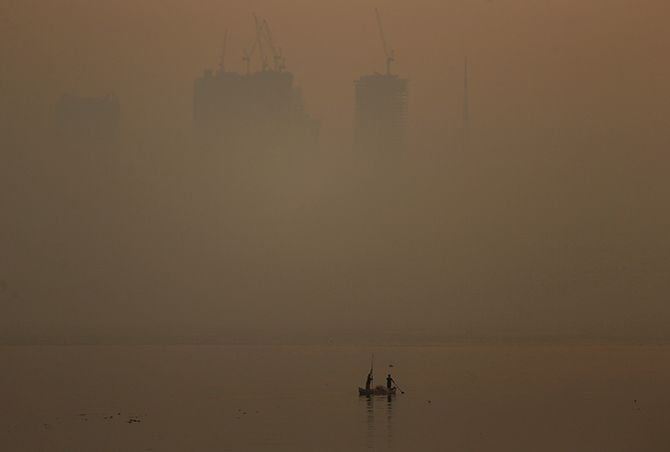
The UN Secretary General António Guterres has invited world leaders to the Climate Action Summit on September 23 at New York.
He has requested countries to come prepared to announce enhanced emission reduction targets for the first phase of the Paris Agreement, which starts in 2020 -- higher than what they have already agreed to.
Prime Minister Narendra Modi is expected to attend.
Before he does, he and his cabinet would have to take a decision whether to announce our higher greenhouse gas emission reduction target at the summit or not.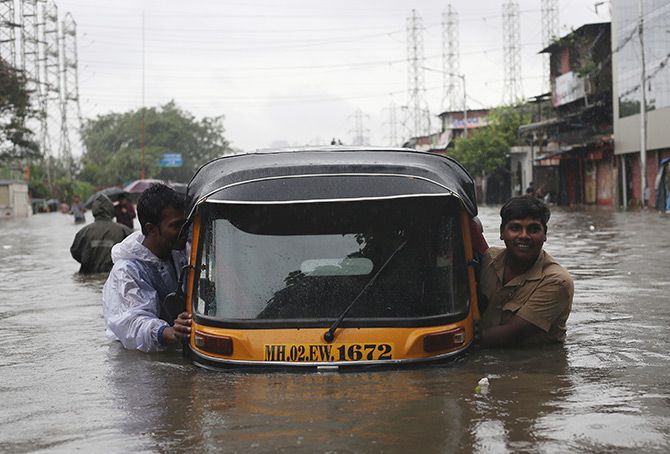
The UNSG’s team has been lobbying for almost a year for countries to bring higher targets to the table as a political announcement at the summit, which can then be put up officially at the formal UN climate change negotiations in Chile at the end of the year.
On the face of it, India is well on trajectory to achieve its existing emission reduction target:
- It committed to reduce the emission intensity of its GDP by 33 to 35 per cent below 2005 levels by 2030. It had already achieved a reduction of 21 per cent below 2005 levels by 2014.
- It also committed to ensuring that 40 per cent of its power capacity by 2030 comes from non-fossil fuel sources. By December 2018, the installed non-fossil fuel capacity had already touched 36.15 per cent and is projected to reach 64.9 per cent by 2030 (including hydropower, nuclear and renewables).
But India lags far behind, however, on its third target of saving an additional 2 to 3 billion tonnes of carbon dioxide equivalent emissions through afforestation.
Overall, the country is well on its route to doing much better than its existing international commitment under the Paris Agreement.
Still, India could easily commit to more at the UNSG summit and cement its position as a global leader in the fight against climate change.
But, there are other issues to consider. The US is unlikely to take on more than its existing meagre target under Paris Agreement with its President Donald Trump continuing to hold the threat of withdrawing from the agreement by 2020. European Union may or may not enhance its existing business-as-usual target but it would still fall short of its fair share.
Both these developed economies continue to work to dilute their commitments to provide finance and technology to developing countries and completely do away with such commitments towards large developing countries such as India.
In effect, if India were to unilaterally -- or along with select partner developing countries -- decide to announce higher targets at the summit, it would aid Europe and the US to break away from arguments of equity and fair sharing of the burden. There are upfront costs of transiting to cleaner economies that India would have to consequently bear disproportionate to its responsibility for causing climate change.
Besides, the clean energy transition in transport, housing and certain industrial sectors is likely to be more difficult and expensive than in the power sector. With the low-hanging fruit of energy efficiency and up-scaling non-fossil fuel being plucked early, the other steps -- such as greening India’s transport fleet or retrofitting buildings for efficiency -- would require large-scale re-engineering of India’s urban growth plans.
Committing a higher target at the UNSG summit, without any real commitment from developed countries on finance and technology, would undermine the relatively more democratic parleys at the formal UN climate negotiations where experienced negotiators are better able to protect Indian interests against the competitive economic edge that developed countries try to gain in the garb of climate change.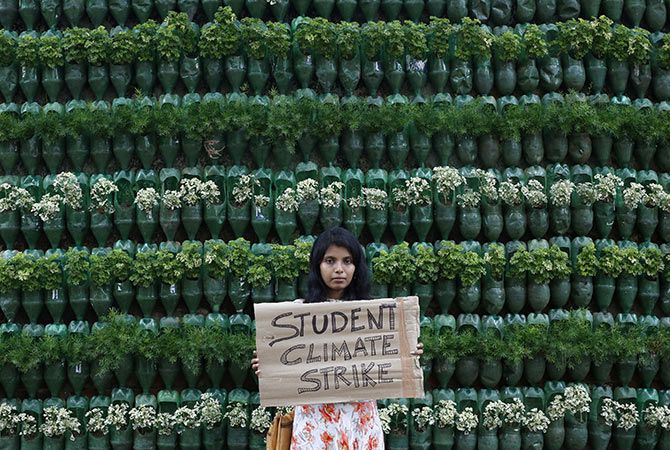
Agreeing to a higher target for the first phase of the Paris Agreement (between 2020-2030) is also going to have a base effect. The agreement requires countries to enhance their numbers for each next phase.
When the process for doing so begins in 2023-2024, India would be locked to higher ambition levels (in terms of emission reductions) for mid- to long-term trajectories without having assessed the feasibility of how that would impact the economy post-2030. Such long-term projections are always more difficult for emerging economies compared to advanced ones and India has a history of missing its energy mix targets.
A country such as India could have more ambitious domestic targets but commit more conservatively under international agreements -- as other countries have done -- to maintain strategic parity and also avoid any embarrassment at a later stage of falling short of its commitment.
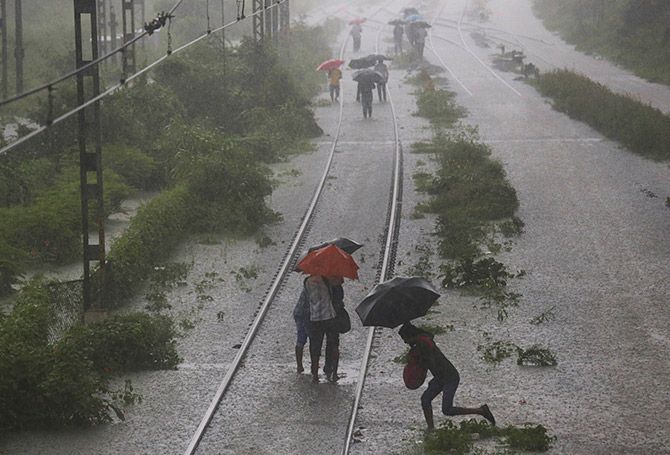
Even now, the government’s decision to set up 175 GW of renewable power by 2022 remains a purely domestic target. Internationally, it has committed to numbers for non-fossil fuel power capacity (which includes hydropower and nuclear). This gives it flexibility.
Yet, another factor in the decision-making for the Indian government would be how the political leadership wants to shape its global role. For this, it would look at what China intends to do.
So far, China and India have been seen on a par in leading on the climate front. Notably, in its invitation, the UNSG’s office had earlier suggested that only leaders who come with plans for enhanced action would get the opportunity to speak at the summit.
Photographs: Rupak De Chowdhuri/Reuters and Francis Mascarenhas/Reuters.
Lead image: Mike Segar/Reuters
